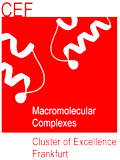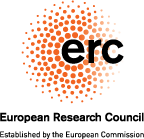Teaching
Lectures and courses
We offer special lectures and courses in Electron Microscopy and Image Processing for physic, biophysic, biochemistry, chemistry and biology students. Our aim is to teach you the main principles of both methods and give you an understanding for their impact in modern Life Sciences.
Image processing methods in structural biology
In this lecture we will provide you with a comprehensive overview of the theory of image processing and give you an introduction into the established image processing methods in structural biology (Electron Microscopy and X-Ray Crystallography). These are the two most important techniques for the description and structural characterization of cells and molecular complexes respectively. All algorithms are presented in the context of structural techniques.
Principles of Electron Microscopy
In this lecture we will teach you the basics of electron microscopy. We will provide a general descriptive overview of the hardware of the electron microscope and give an overview of the commonly used methods. Primarily the biological appliances of electron microscopy will be covered. The newly learned can be intensified in the lecture course offered only in the summer semester.
Introduction to Electron Cryo Microscopy and Image Analysis.
Aim of this 4 days lecture course is to give an introduction to electron microscopy (EM) with a focus on cryo EM. Theoretical lectures will be held in the mornings; practicals will be conducted in the late mornings and afternoons to give you some "hands-on" experience. You will run how to record images for single particle analysis, as well as tilt-series for 3D reconstruction. The lectures will cover the various techniques in image processing as well as advanced aspects in 3D electron microscopy such as molecular docking, automation of data collection and new technical developments. The practicals in image analysis will be divided into four sections covering the most common fields like tomography: single particle processing, icosahedral reconstruction, helical reconstruction and 2D-crystal processing. You will work in small groups of 3-4 students. The number of students is limited to 12.
For inquiries please contact: anja.seybert(at)biophysik.org, Tel: +49-69-798-46466.




